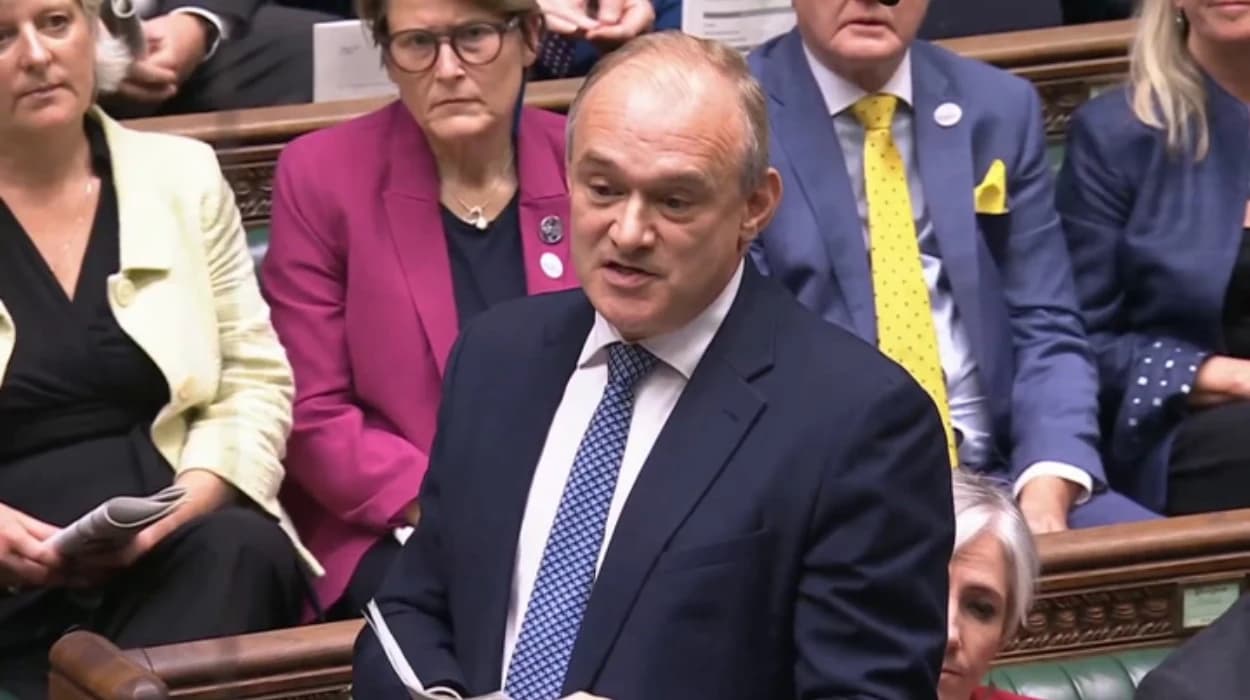Downing Street has dismissed the idea of a Commons debate on
Prince Andrew, citing the royal family's desire not to distract from
parliamentary business.
Because of his friendship with Jeffrey Epstein and his rent-free Windsor castle, the King's brother has come under growing pressure.
Although Sir Keir Starmer stated on Wednesday that he would be in favor of "proper scrutiny" of Crown Estate arrangements, Downing Street implied on Thursday that the government does not intend to schedule time for Members of Parliament to discuss the issue.
Asked if the government would be making time, a Number 10 spokesperson said:
“Prince Andrew has already confirmed he will not use his titles.
We support the decision made by the Royal Family, and we know the royal family would not want to take time from other important issues.”
"There are ways for the House to properly consider the matter,"
stated Commons Speaker Sir Lindsay Hoyle on Thursday.
Earlier this week, Liberal Democrat leader Sir Ed Davey questioned the Prime Minister's belief that MPs should "properly scrutinise the Crown Estate to ensure taxpayers’ interests are protected" in light of the Royal Lodge disclosures.
Meanwhile, 26 MPs have signed an early day motion calling for the government to “take legislative steps to remove the dukedom granted to Prince Andrew”.
Addressing MPs on Thursday, Sir Lindsay said:
“I know there has been some commentary on what members of this House may or may not discuss in the chamber in relation to Prince Andrew, some of which is inaccurate.
There is understandably great interest from members and from the public on this matter. For the benefit of the House, I would like to be clear that there are ways for the House to properly consider this matter.
Any discussions about the conduct or reflections on members of the royal family can be properly discussed on the substantive motions. And I know some members have already tabled such a motion. I am not able to allocate time for a debate on such a motion, but others are able to do so, if wishing to do that.”
The government, opposition parties during opposition day discussions, and backbenchers via an application to the Backbench Business Committee can all introduce substantive resolutions.
It comes as the postmortem memoir of Andrew's sex accuser Virginia Giuffre was released, putting further strain on the prince's ties with the infamous billionaire Epstein.
Andrew has refuted claims that he coerced Ms. Giuffre into having sex with him.
Andrew declared last Friday that he would no longer use his Duke of York title, but that it would need to be formally revoked by an act of parliament.
How often Commons grants emergency debate time and why?
The House of Commons has the capability to allocate
emergency debate time generally under the Standing Orders which give for
debates lasting up to three hours although the Speaker can limit them to a
shorter time. Emergency debates are frequently convened at short notice
following a process initiated by MPs and concentrated on the
Speaker.
Generally, MPs make the operation for an emergency debate the night ahead or on the day of the intended discussion, and after a brief discussion by the MP the Speaker decides if it'll be debated.
Emergency debates generally develop out of a situation which requires immediate discussion on a critical and important issue. Although the outgrowth isn't typically binding on the government to act, it can produce significant political pressure.
